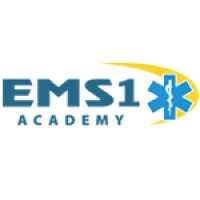As a paramedic on the high side of 60, I sometimes have to defer to my much younger colleagues for day-to-day perspectives on new medical technology. Ultrasound and ECMO (extracorporeal membrane oxygenation) were never found on ambulances when I joined EMS.
Once in a while, though, I might surprise our newest and brightest with been-there-done-that tales reaffirming the notion of old medics as occasionally useful.
Take distance learning. Half a century ago in a greater Boston school district, I was part of a high-tech experiment – high tech for 1962, that is. Twice a week, about 30 of us fourth-graders would gather in front of a boxy, 21-inch television set and try to learn French from Madame Slack on WGBH, a local station that pioneered what used to be called educational TV – as much of an oxymoron then as it is now.
I wouldn’t say the experiment was successful; nine or ten was a little young to be absorbing anything from a barely visible black-and-white image of an instructor who couldn’t even tell if we were paying attention. I retained just enough French to order bread and butter from English-speaking waiters.
Slideshow shortcuts
Even our teachers weren’t smart enough to know that 20 years later, personal computers would promote decentralized control of content – the first step toward self-directed instruction. By the late 1990s, as the internet became much more of a presence in everyday life, digital lessons were a mainstream alternative to on-site lectures. Suddenly there were ways for EMS providers – and every other professional – to satisfy at least some of their educational requirements without having to travel to brick-and-mortar institutions.
Shortly after Y2K hysteria proved unfounded and microprocessors were once again our friends, I was introduced to computer-based training, also known as CBT. We started using desktop units at my agency to streamline an unpopular administrative exercise: bloodborne-pathogen familiarization.
Those early slideshows were comical. The only interactive features were insipid, multiple choice questions no more challenging than “Bloodborne pathogens: (A) bad or (B) good?”
It was clear to everyone involved that those CBT lessons – if you could call them that – were an easy but superficial way for companies to comply with well-meaning regulations about safety in the workplace.
By 2010, CBT had expanded from a tactical, continuing-education tool to a less-expensive, more-convenient way to earn college degrees. That’s a big plus for financially challenged EMS providers with two or three jobs.
CBT’s more subtle advantages are worth noting, too.
Self-directed learning
People learn in different ways at different speeds and times. Not only does internet-based content usually contain ample audio and visual cues, but students get to focus on whatever elements work best for them and repeat lessons, if necessary, according to individual schedules. Even if you were to record lectures you actually attended, it’s unlikely the video would be as engaging or the sound as clear.
CBT also automates evaluation of students, who get more effective reinforcement when content and associated exams aren’t days apart. But are open-book tests – necessary components of distance learning – better indicators of achievement than conventional, closed-book alternatives?
Better students, better results
It’s no surprise research shows students find open-book exams less stressful than closed-book. However, comparative measures of learning associated with those two options yield mixed results. For example, a 2008 study found students scored better on open-book tests, but didn’t retain knowledge any better than those who were given closed-book exams [1].
Other research reveals performance depends more on pupils’ innate abilities than on the type of exam; test-takers who knew less and, therefore, had to rely more on reference material didn’t score as well, even with open books.
In 2012, Gharib and Phillips concluded test type doesn’t matter; good students will perform better than poorer ones [2]. And long-term retention of material was similar, based on quizzes administered weeks later. That’s good news for the CBT industry, which has no choice but to rely on open-book exams.
Today, the most critical issue facing distance learning may be neither customization nor evaluation of training.
Social studying
I’ve had over 40 years to contemplate the pros and cons of my college education. Without question, the highlight of those years was interaction with instructors, classmates and campus life in general. I can’t imagine adapting to adulthood as quickly without so many opportunities to screw up in the company of others. I’m concerned that students with remote portals to academics will emerge with much less practical knowledge than my college contemporaries and I absorbed outside the classroom.
Convenience and lower costs will continue to drive computer-based training. If socialization is a casualty of that paradigm, expect a generation of new college graduates with teenage sensibilities.
I think Madame Slack would have called that “un fait accompli.”
References
1. Akresh-Gonzales J. Open-book vs. closed book exams. http://knowledgeplus.nejm.org. Accessed 08/13/16.
2. Gharib A, Phillips W. Cheat sheet or open book: putting tests to the test. http://www.npr.org. Accessed 08/13/16.















